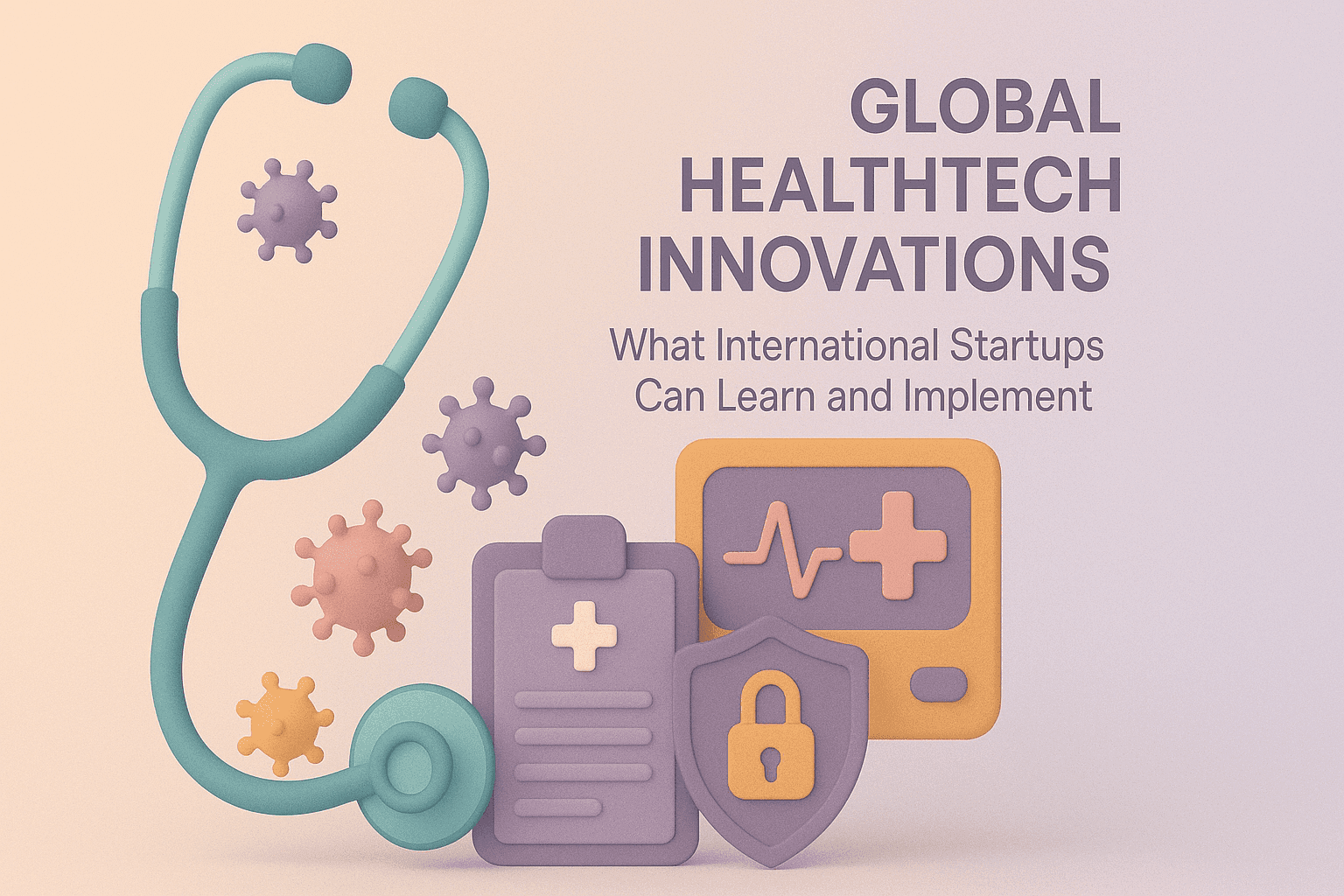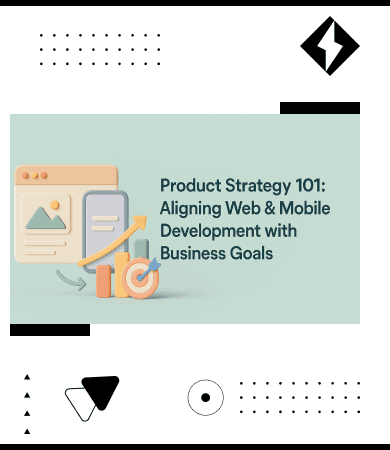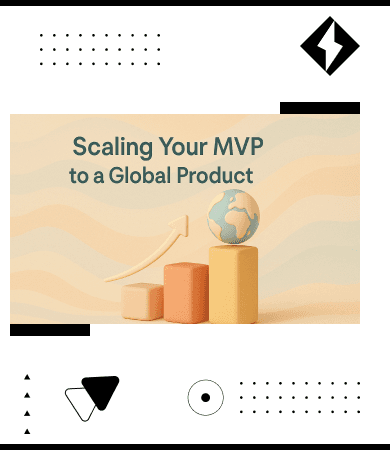Support center +91 97257 89197
Healthcare tech developmentDecember 3, 2024
Global Healthtech Innovations: What International Startups Can Learn and Implement

The healthcare sector is rapidly evolving, driven by technological advancements and the increasing demand for efficient, accessible medical services worldwide. International healthtech startups stand at the forefront of this revolution, transforming healthcare delivery through innovative solutions. This blog explores the most impactful global healthtech innovations, offering actionable insights and lessons international startups can learn and implement to succeed in this competitive industry.
Understanding Global Healthtech Trends
Healthtech, short for healthcare technology, encompasses digital solutions designed to improve healthcare delivery, efficiency, and patient outcomes. Recent innovations have significantly reshaped the landscape, emphasizing remote care, personalized medicine, and leveraging artificial intelligence (AI).
Key Healthtech Trends
-
Telemedicine: Telemedicine platforms have grown exponentially, connecting patients and healthcare providers virtually, reducing the need for physical visits, and significantly enhancing accessibility, especially in remote regions.
-
AI-Driven Solutions: AI-powered diagnostic tools, predictive analytics, and automation of administrative tasks enable healthcare providers to deliver precise, personalized care while managing operational costs.
-
Remote Patient Monitoring: IoT-enabled devices and sensors collect real-time health data, empowering healthcare professionals with timely insights and improving chronic disease management.
-
Blockchain in Healthcare: Ensuring secure, transparent management of patient records and pharmaceutical supply chains through decentralized blockchain technology significantly improves data integrity and trust.
Lessons International Healthtech Startups Can Implement
1. Prioritize Patient-Centric Solutions
Successful healthtech innovations are often those designed with patients' specific needs and experiences at the forefront. Startups must adopt a user-centric design approach, ensuring solutions are intuitive, accessible, and truly enhance patient outcomes.
2. Leverage Strategic Partnerships
Collaborations with healthcare providers, tech giants, and research institutions accelerate innovation and adoption. Partnerships facilitate regulatory navigation, technological expertise, and provide critical market validation.
3. Adapt to Regulatory Landscapes
Healthcare is heavily regulated, and international startups must thoroughly understand and comply with regulatory requirements in their target markets. Continuous monitoring of policy changes and proactive compliance strategies are vital.
4. Embrace Scalability and Interoperability
Scalable technological infrastructure and interoperability with existing healthcare systems enable startups to integrate seamlessly, promoting widespread adoption. Cloud-based solutions and standardized protocols are essential.
5. Data Privacy and Security
Protecting sensitive patient data is critical. Implementing robust cybersecurity measures and privacy policies aligned with global standards such as HIPAA and GDPR ensures trust and legal compliance.
Inspiring Examples of Global Healthtech Startups
-
Babylon Health (UK): Revolutionizing telemedicine through AI-driven health assessments, offering scalable, affordable healthcare globally.
-
Aidoc (Israel): AI-powered medical imaging solutions provide accurate diagnostics, dramatically reducing the time from scan to treatment.
-
Medtronic (USA/Ireland): Pioneer in remote patient monitoring devices and IoT-enabled healthcare solutions, transforming chronic disease management.
-
Doktor24 (Sweden): Innovating hybrid care models combining physical and virtual healthcare solutions to optimize patient care experiences.
-
Patientory (USA): Utilizing blockchain technology to securely manage patient records and medical supply chains, enhancing transparency and reliability.
Implementing Global Innovations in Your Startup
To successfully implement global innovations:
-
Conduct thorough market research to identify gaps and opportunities.
-
Engage actively with healthcare professionals and end-users for continuous feedback.
-
Invest in continuous innovation and iterative development.
-
Prioritize clear communication and transparency with stakeholders.
Conclusion
The global healthtech sector offers tremendous opportunities for international startups. By embracing innovations in telemedicine, AI, blockchain, and remote patient monitoring, startups can significantly impact healthcare delivery. Focusing on patient-centricity, strategic partnerships, regulatory compliance, scalability, and data security will position startups to thrive in this dynamic environment.
TLDR
International healthtech startups can revolutionize healthcare by adopting global innovations such as telemedicine, AI diagnostics, blockchain technology, and remote monitoring. Success lies in patient-centric design, strategic partnerships, regulatory compliance, scalable infrastructure, and rigorous data privacy measures.
FAQs
Key trends include telemedicine, AI-driven diagnostics, remote patient monitoring, personalized healthcare, and blockchain for secure medical data management.
Startups can adopt innovations by understanding market needs, leveraging partnerships, focusing on user-centric design, and using scalable technology platforms.
AI enhances diagnostics, predictive analytics, personalized treatment plans, patient monitoring, and automates administrative tasks in healthcare.
Key challenges include regulatory compliance, data privacy issues, funding and scalability, interoperability, and market-specific customization.
Telemedicine is crucial, allowing startups to extend healthcare access, improve patient outcomes, and significantly reduce operational costs.
Work with us







